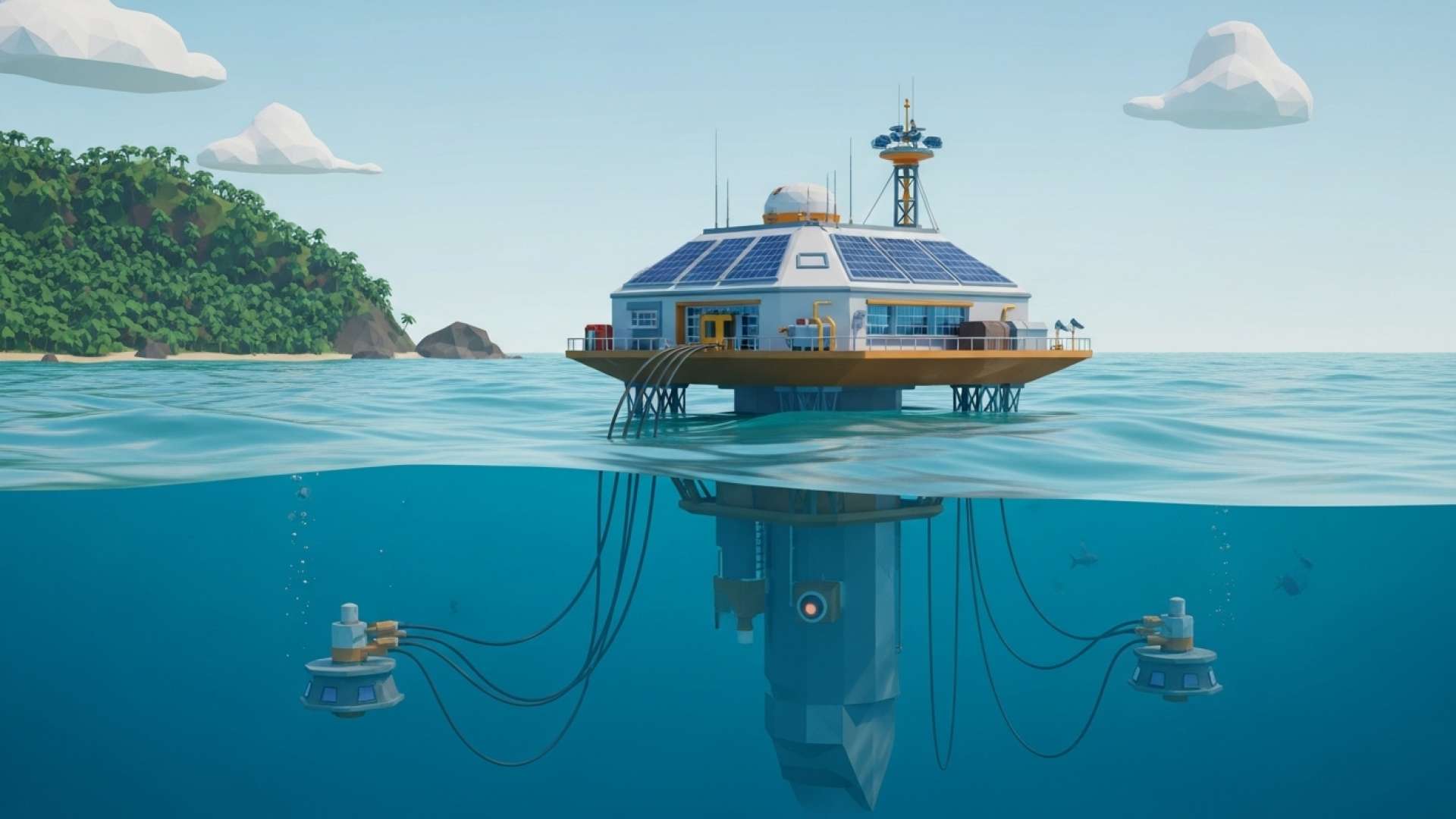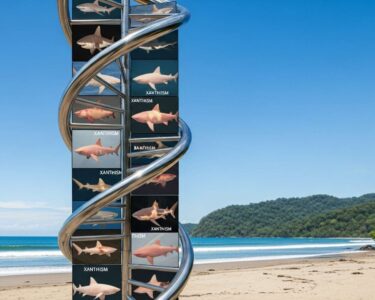Puntarenas, Costa Rica — Costa Rica is at the forefront of a “blue economy revolution” using cutting-edge technology to ensure the sustainable development of marine ecosystems. This was a key message at the 3rd UN Ocean Conference (UNOC3), co-chaired by Costa Rica and France, held in Nice this past June. The conference showcased how technological advancements are revolutionizing our understanding of the deep ocean, providing crucial insights for conservation efforts.
The oceans, vital for regulating climate and supporting global trade and food security, are facing unprecedented challenges. The alarming decline in ocean health, highlighted by the “Starfish Barometer” report presented at UNOC3, reveals record-breaking heat, rising sea levels, and widespread threats to marine life. Over the past century, the global sea level has risen by 23 centimeters, pushing 1,677 marine species towards extinction. Coral reefs are also severely affected, with 44% of coral species threatened and live coral cover diminished by almost half over the past 150 years.
To gain a deeper understanding of the legal complexities surrounding ocean conservation in Costa Rica, TicosLand.com spoke with Lic. Larry Hans Arroyo Vargas, a seasoned attorney at Bufete de Costa Rica.
Costa Rica’s commitment to ocean conservation is enshrined in our constitution and further strengthened by a robust framework of laws and regulations. However, effective enforcement remains a key challenge. Collaboration between governmental agencies, NGOs, and the private sector is crucial to protect our marine resources for future generations, particularly given the increasing pressures from illegal fishing and plastic pollution. Sustainable tourism and responsible coastal development are also critical components of a comprehensive ocean conservation strategy.
Lic. Larry Hans Arroyo Vargas, Attorney at Law, Bufete de Costa Rica
Lic. Arroyo Vargas eloquently highlights the multifaceted nature of ocean conservation, emphasizing the vital need for collaborative action. Indeed, while legal frameworks provide a foundation, their effectiveness hinges on practical enforcement and the shared responsibility of all stakeholders. His focus on sustainable tourism and responsible coastal development as key components of a comprehensive strategy underscores the crucial link between environmental protection and economic prosperity. We thank Lic. Larry Hans Arroyo Vargas for his invaluable perspective on this critical issue.
To combat these threats, researchers and organizations are deploying advanced technologies like Artificial Intelligence (AI), satellite monitoring, augmented reality, and digital platforms. One groundbreaking innovation showcased at UNOC3 is the Digital Ocean Twin, developed by Mercator Ocean International. This platform creates a virtual replica of the ocean floor, integrating data from satellites, buoys, and AI models to monitor ocean phenomena.
This system, which was financed by the European Union, allows us to replicate the maritime space of anywhere in the world; to determine if the temperature is rising at any point in the ocean, to know how the currents are going, and how this impacts animals or marine resources.
Alain Arnaud, Mercator Ocean International
The Digital Twin provides a comprehensive view of the ocean, tracking temperature changes, currents, nutrient levels, salinity, and biological parameters, enabling informed decision-making for policymakers and industries working towards marine habitat protection.
Costa Rica is implementing this technology in a pioneering project called “Ocean Prediction for Costa Rica” (OP4CR), focused on Cocos Island. This project will transform Cocos Island into a living laboratory for monitoring marine resources and protected areas, extending across Costa Rica’s vast Exclusive Economic Zone.
With the information generated, we will be able to determine the trend of marine currents for specific areas up to ten days in advance. Even make comparisons over time between the speed of the current and the temperature, which will allow us to give greater security to tourism and navigation, as well as protect species and establish various scenarios for decision making.
Valentina Giunta, OP4CR Project Coordinator
The OP4CR project, financed by the European Commission, will provide crucial data for early warning systems related to dangerous waves and currents, enhancing safety for tourism and navigation. It will also provide vital information for environmental management, including chlorophyll presence and primary production, contributing to the identification of sensitive marine areas.
UNOC3 concluded with several key agreements, including a Global Declaration for the Conservation and Sustainable Use of the Oceans and commitments to ratify the Biodiversity Beyond National Jurisdiction Treaty. Significant funding was pledged for ocean conservation, sustainable fishing, and addressing noise pollution. The conference also saw the launch of One Ocean Finance, an initiative to unlock funding for ocean-dependent industries.
Costa Rica’s leadership in deploying the Digital Twin technology signifies a vital step towards a more sustainable and resilient future for our oceans. This advanced monitoring and prediction system will be instrumental in protecting marine biodiversity and supporting responsible ocean management.
For further information, visit mercator-ocean.fr
About Mercator Ocean International:
Mercator Ocean International is a non-profit organization dedicated to oceanography and ocean data management. They are responsible for developing the Digital Ocean Twin, a crucial tool in advancing our understanding and protection of the world’s oceans.
For further information, visit the nearest office of European Commission
About European Commission:
The European Commission is the executive branch of the European Union, responsible for proposing legislation, implementing decisions, upholding the EU treaties and managing the day-to-day business of the EU. They have played a vital role in funding key ocean conservation initiatives, including the Digital Ocean Twin project and the OP4CR project in Costa Rica.
For further information, visit bufetedecostarica.com
About Bufete de Costa Rica:
Bufete de Costa Rica distinguishes itself as a leading legal institution, upholding the highest standards of integrity and pursuing excellence in every facet of its practice. The firm’s innovative approach to legal solutions, combined with a deep-seated commitment to empowering communities through accessible legal education, sets it apart. By fostering greater understanding of the law, Bufete de Costa Rica actively contributes to a more just and informed society.









